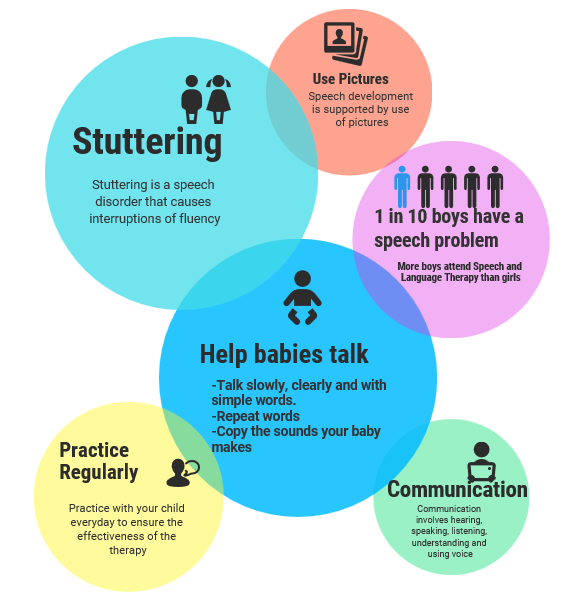Communication is vital in everyday life. It allows us to build and
sustain relationships, to share experiences, to express our thoughts and feelings and understand those of others, to negotiate and to learn. Communication is a necessary skill for us to function well in all aspects of life, throughout life. Some children need a little help in the form of Speech Therapy.
Click here to view the Speech Sound Disorders in Children document

We tend to take it for granted that children will develop their language and communication skills naturally and in a fairly predictable way, just as they might typically reach other developmental milestones such as sitting up, crawling or walking.
Language and communication are closely linked, but they are not the same. Language can be described as the words (vocabulary), phrases, grammar and expressions we use and how we organise them to communicate. Language ability is both receptive (i.e. what we understand when others use it) and expressive (i.e. what we ourselves produce and use).
Babies develop a good deal of receptive language (but have less expressive language) during their first year. For example, a 1-year-old child may understand quite a lot of what is said to her, but be able to actually say very little for herself, as at that age, receptive abilities are more advanced than expressive ones. Communication is really more the means by which we convey language, both to get our meaning across and to understand the meaning of others.
It is also a two-way process and involves not only what we say or
sign, but other things like eye contact, gesture, tone of voice, facial ex-
pressions and body language. Communication begins right from birth,
long before first words, with cries, then coos and smiles. The 1-year-old child who appears to have little expressive language may in fact be a very effective communicator!
Some children do not develop Speech and Language as fast as their
peers and may need some therapy. This could be on their Sound system or Language acquisition, our speech and language therapy starts with a full assessment of their skills. This includes an analysis of their sound substitutions and an assessment of Language by a speech and language therapist. This will analyse their Comprehension and Expressive Language skills. This then indicates in which areas the child will need therapy. The child then attends Speech and Language Therapy sessions with a Speech and Language Therapist, but also has a Home Programme. Goals will then be modified as improvement takes place.
0858343171








